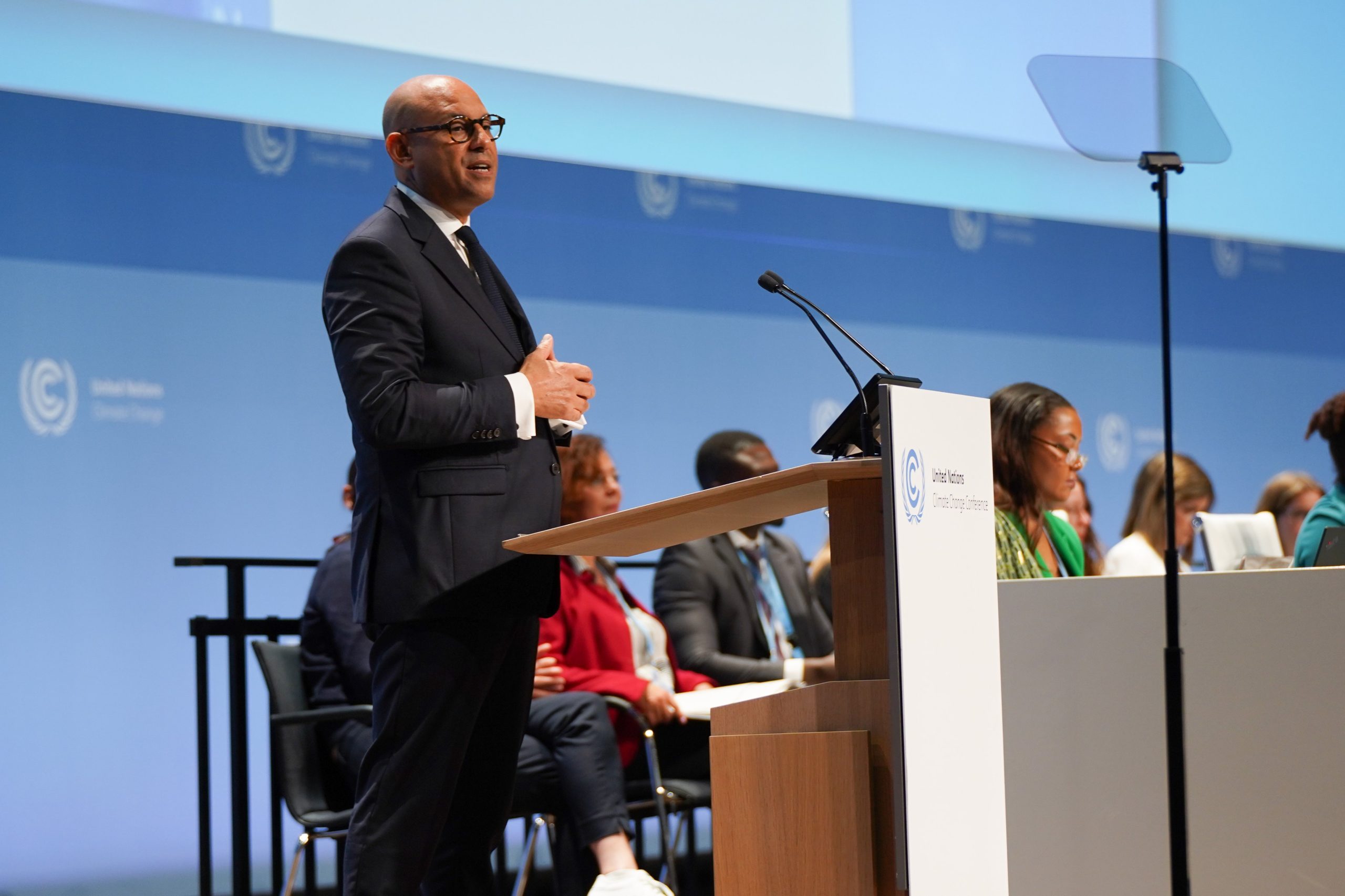UN Climate Change Executive Secretary Simon Stiell Monday opened the 60th Subsidiary Bodies session in Bonn with a clear and determined message. “People talk about the architecture of the Paris Agreement that all your nations collectively created and agreed. I prefer to think of its engineering,” Stiell stated at the opening meetings in Bonn.
“The design phase is completed, and our task now is to put that machinery to work, fully and fairly.”
Stiell emphasised the need for cohesive and functional components in climate action.
“We need every part of this machinery fully functioning and working coherently together,” he said, setting the stage for discussions.
“First, we must make serious progress on finance — the great enabler of climate action,” Stiell urged.
“Here in Bonn, I urge you to move from zero-draft to real options for a new collective quantified goal on finance. We cannot afford to reach Baku with too much work still to do. Please, make every hour here count.”
Stiell highlighted the importance of innovative financing mechanisms.
“New grant and highly concessional forms of finance to developing countries must be coupled with global financial reforms that deliver debt relief and affordable finance, and finding new and innovative sources of finance, outside of the process,” he explained.
“This new round of national climate plans – NDCs 3.0 – will be among the most important policy documents produced so far this century,” Stiell asserted. He called for ambitious and comprehensive plans.
“These plans should be bolder – with more ambition – and should speak to closing the implementation gap, building on what has already been achieved.”
Stiell also emphasised inclusivity in the benefits of NDCs.
“Their benefits should flow to all, including women, Indigenous Peoples, youth, and those most vulnerable to climate impacts hitting right now.”
“Under the Paris Agreement, Parties agreed to submit their first Biennial Transparency reports this year,” Stiell reminded attendees. “These reports will help Parties build the stronger evidence base for ambition.”
He stressed the importance of timely reporting.
“I urge all Parties – let’s not allow perfection to be the enemy of the good in getting this first round of BTRs submitted this year”
“Climate change impacts are not isolated events. They transcend political boundaries, damaging economies and causing cascading changes to our societies and culture,” Stiell said,
He also stressed the need for comprehensive National Adaptation Plans.
“Every Party needs a National Adaptation Plan that covers every sector of the economy and works across our societies.”
Stiell set a clear target: “We need every country to have a plan by 2025 and make progress on implementing them by 2030.”
“The role of civil society is essential – to ensure all voices have a chance to be heard, and to hold all of us to the promises that we make,” Stiell stressed.
He also emphasised the intersection of gender equality and climate action. “Gender equality and climate action must rise in tandem, to realise their full transformative force.”
Stiell highlighted the challenges of increasing mandates without corresponding financial support.
“Financial contributions have not increased to match these growing mandates, and many existing funding pledges have not been fulfilled on time,” he noted.
Reflecting on past achievements, Stiell offered a hopeful perspective.
“Without UN-convened international cooperation, we would be headed for up to 5 degrees of global heating, which most of humanity likely could not survive. We are now heading for around 2.7 degrees.”
He stressed the urgency of continued progress and urging collaboration and respect.
“We cannot afford rest-stops or detours at this half-way point in humanity’s climate journey. And we absolutely cannot afford to stumble in the next ten days, or for global climate progress to stall this year and beyond.”
“This requires trust and respect for each other. Full adherence to the code of conduct is essential, with no exceptions. Respectful disagreements are part of this process, but they must not be its defining feature or its outcome. I urge you to come together, and to overcome differences,” he said.














